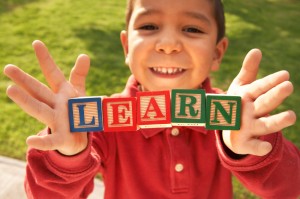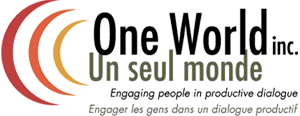Is Developmental Evaluation Right for Your Program?

When you hear the word “evaluation,” you might think of it as something that is done after the fact. That would be fair, because that’s when many evaluations take place — after an event, program, or course. Evaluations typically tell us how we did, as well as what we could have done better. While this approach can be very useful where you have an established program model that you already understand well, it is not very useful where you are working in completely new territory – where you are trying to figure things out as you go. Developmental evaluation can be a powerful tool for these situations.
Looking back vs. learning throughout
An evaluation that takes place after an event is called a summative evaluation. This kind of evaluation is most valuable when working with well-established program models — that is, models with a strong body of research behind them. For example, there is a wealth of information on the effectiveness of various methods for getting people to quit smoking. If you wanted to look at the overall effectiveness of a program that had very clear goals and a well-established methodology based on tested assumptions, a summative evaluation would be a good choice.
If you’re treading on less familiar ground with more complex issues, it would be far more beneficial to incorporate developmental evaluation. Simply put, developmental evaluation means clarifying our understanding of an issue at the beginning, trying small interventions, and learning lessons along the way. It’s not just asking questions at the end of the journey; it’s questioning throughout. What assumptions do we have about the issue we are dealing with? What decisions are we making about how to deal with the issue, and why? What are we learning about the issue along the way? How can we use this information to give us a better sense of what we’re dealing with?
Developmental evaluation in action
I’ll use two projects I’m currently working on as examples of the kinds of issues that benefit from using a developmental evaluation approach.
A national coalition is focused on developing programs to support physical activity for kids in the afterschool time period. We know obesity is a growing problem in our society, especially for children and youth. We also know that the afterschool time period is critically important for physical activity, but kids are still largely inactive. Now, the crucial question is: How can we address this issue?
This coalition is looking to increase its understanding of the issues associated with physical activity in the after school time period, and the types of interventions that help kids to be more active. Coalition members are also trying to better understand the challenges being experienced by certain populations such as Aboriginal Canadians and new Canadians. They also want to better support families and after school program providers to help them in their role in addressing the issue. This group has used a developmental evaluation approach to help them to frame and learn from their interventions.
In another example, I’ve recently started working with a national coalition that’s targeting youth homelessness. This is another complex issue that does not lend itself to simple solutions, although some communities have developed innovative interventions. The goal of the coalition is to help communities to develop broadly-based strategies to address this issue. The group has secured foundation funding for pilot projects in several communities, and wants to learn how they can help these communities most effectively. Developmental evaluation fits well with the “learning as you go” approach that this initiative is taking.
Developmental evaluation can be a very useful approach to help groups to clarify their thinking, and plan and learn from their interventions.
